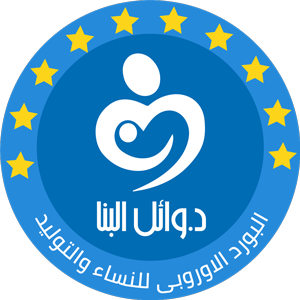Cytomegalovirus and pregnancy
Cytomegalovirus, or CMV, is a common and usually harmless virus that can infect people of all ages. Most healthy adults and children who catch it will have no signs or symptoms and no long-term effects – most do not know they have it. However, it can cause long-term problems for babies who become infected before they are born. This is known as congenital CMV infection.
Around 1 in 150 newborn babies are born with congenital CMV. The majority of these will not have any symptoms
It is more common than other more well-known conditions such as Down’s syndrome, toxoplasmosis, spina bifida or cystic fibrosis.
The CMV virus is only harmful to pregnancy when it is active. This is usually:
- when you catch it for the first time
- if it is reactivated (because you have a weakened immune system)
- if you have been infected again by a different strain of CMV.
How could I catch CMV?
CMV is usually passed on through bodily fluids, such as urine, saliva, blood, mucus and tears.
A lot of small children catch CMV, especially those who attend nurseries and playschools.
Pregnant women who have young children or work with young children should be careful with hand hygiene and sharing cutlery or food with toddlers. Research has shown that the main way a pregnant woman catches CMV is from the saliva and urine of young children.
Signs and symptoms of CMV in pregnancy
Most healthy adults who have CMV will have no symptoms, including pregnant women. Others may have a mild illness with symptoms such as:
- fever
- sore throat
- fatigue
- swollen glands.
If you have the flu-like symptoms listed above, you should talk to your GP or midwife.
Signs and symptoms of CMV in babies
In an unborn baby, CMV might be spotted from abnormalities seen on antenatal ultrasound scans.
Once the baby is born, most will not show any signs of CMV at birth and will go on to have no problems at all.
If it is suspected that a newborn may have CMV they will have tests to check. These could include blood tests, oral swabs, urine tests, ultrasounds scans and hearing tests. The baby will also have more tests up to the age 12 to make sure that nothing has been missed, such as ECG to check that the heart is OK.
Around 1 in 7 babies who have caught congenital CMV will go on to develop a hearing loss over time. They could also have developmental or learning difficulties but this is very rare.
1 in 10-15 of babies born with CMV will have more clear symptoms, such as:
- microcephaly (a small head)
- little red spots (petechiae)
- jaundice
- enlarged liver and spleen
- hearing loss
- calcium deposits in the brain.
Some children will also go on to develop problems such as physical impairments, seizures, Attention Deficit Hyperactivity Disorder (ADHD), autism, developmental delay or visual impairment.
How is CMV diagnosed?
Most CMV infections are not diagnosed because the infected person usually has few or no symptoms.
A blood test can tell if you carry the CMV virus from a previous infection. However, this is not very helpful because it is still possible to get infected from a different strain or for the virus to reactivate in future pregnancies
Treatment for CMV in pregnancy
Researchers are investigating vaccines to reduce the risk of a woman catching CMV as well as treatments to reduce the risk of the mother passing CMV to her baby.
It is important for all pregnant women to follow simple hygiene precautions to reduce their risk of infection:
- Avoid sharing dummies, cutlery, drinks or food with anyone
- Avoid kissing babies, toddlers and small children directly on the mouth. Kiss them on the forehead or cheek instead
- Wash hands with soap and water, especially after feeding, changing nappies or coming into contact with any bodily fluids
- Wash any items that have come into contact with bodily fluids with soap and water.
Treatment for CMV in babies
Antiviral treatments can be used to treat some babies who are affected by CMV after they are born.
This treatment is only currently recommended for babies younger than 1 month of age who have signs of being affected by the virus.
The goal of treatment is to reduce the amount of active virus, which allows the baby to control the infection with his or her own immune system.
If your baby has no sign of being affected by the virus but you know they have been exposed to it, they are not usually treated. This is because any medicine used to treat it could have side-effects. It’s best to talk to your doctor about these.
Breastfeeding and cytomegalovirus
CMV can be passed from a mother to her child through breast milk but in full-term babies the virus is harmless as your baby’s immune system is strong enough to deal with it and the milk also contains antibodies that are protective against CMV. Children born at full term to women with known active CMV infection can and should be breastfed.
The one exception is if a child is born prematurely. The immune system of premature babies is often not strong enough to deal with a CMV infection. Your team will advise you about the best way to feed your baby if it is born prematurely.
